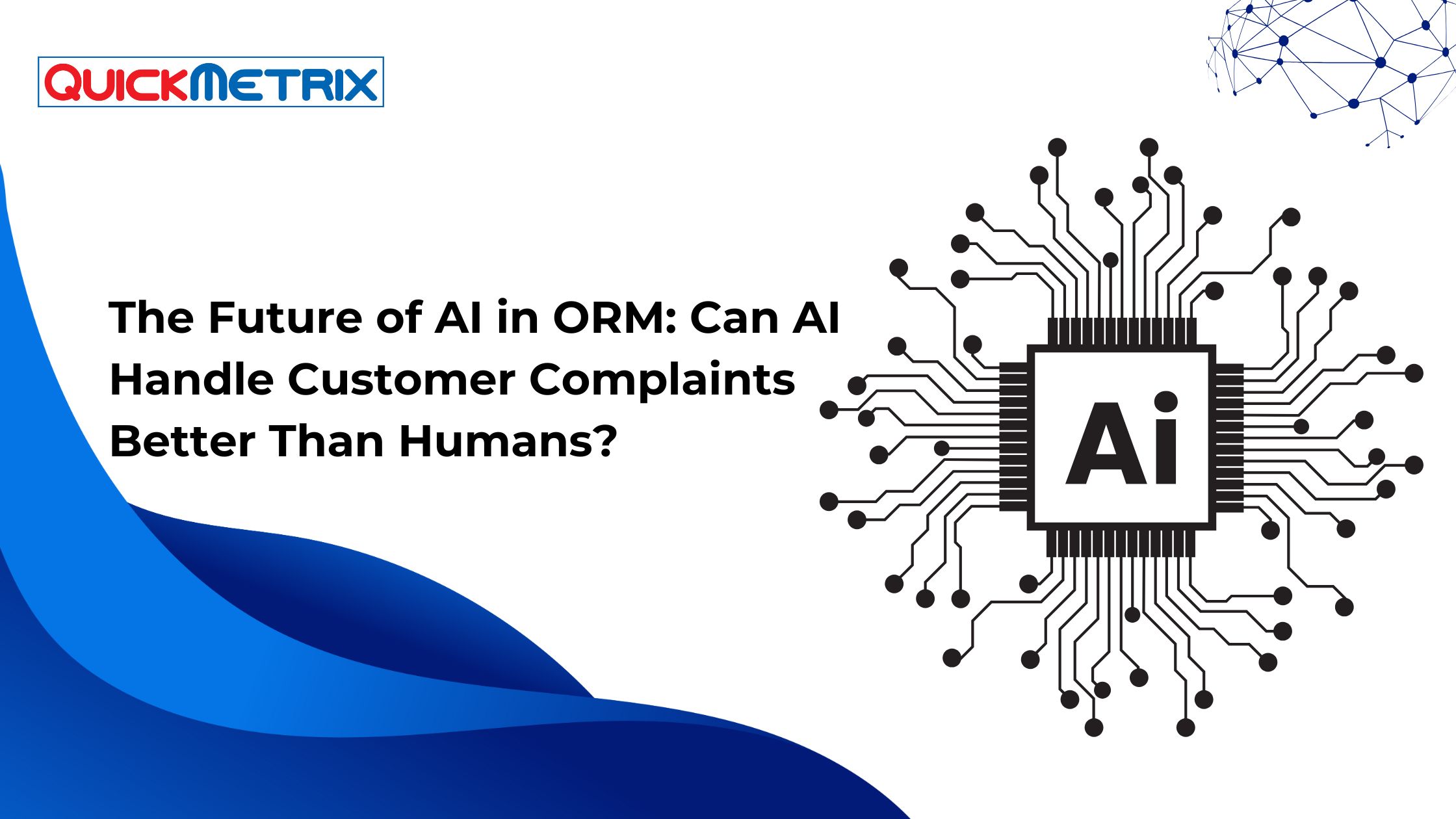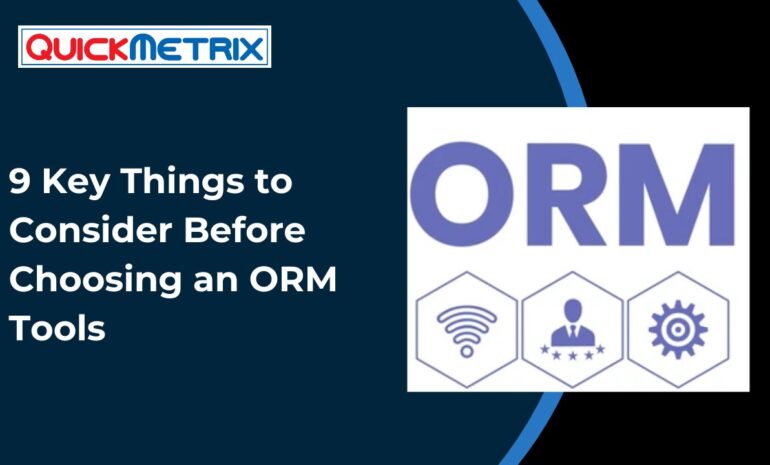I. Introduction to Online Response Management (ORM)/ Online reputation management tools
A. Definition and Importance of ORM
Online Response Management (ORM) refers to the process of monitoring, influencing, and controlling an individual or business’s online reputation. In today’s digital age, where consumers turn to online reviews and social media for feedback, ORM plays an essential role in shaping public perception. Companies face constant scrutiny, and a positive online presence can greatly influence purchasing decisions and consumer trust.
B. Evolution ORM
ORM has come a long way from simply managing negative reviews. Initially focused on crisis management, ORM now involves proactive strategies, including social media engagement, content marketing, and influencer partnerships. As technology evolves, ORM adapts, leveraging tools and strategies that resonate with today’s consumers.
C. Role of Customer Complaints in ORM
Every complaint becomes a piece of feedback that can either tarnish a brand’s image or provide insights for improvement. Addressing customer complaints effectively is crucial for businesses aiming to maintain their reputation. Positive resolution of issues can enhance customer loyalty and promote a brand’s image, while unresolved complaints can lead to negative reviews that spread like wildfire online.
II. The Rise of AI in Customer Service
A. Overview of AI Technologies in Use
Today, we see various AI technologies making their way into customer service, including chatbots, machine learning algorithms, and natural language processing. These tools automate responses, analyze data, and provide real-time support, enabling businesses to offer timely assistance to their clients.
B. Benefits of AI in Managing Complaints
AI brings numerous advantages to managing customer complaints:
- 24/7 Availability: Customers can receive assistance any time, eliminating wait times.
- Consistency: AI provides uniform responses, ensuring that customers receive the same information every time.
- Data Analysis: AI can quickly analyze trends in complaints, helping companies identify recurring issues.
C. Limitations of AI in Customer Interactions
Despite its benefits, AI does have limitations when it comes to customer service:
- Lack of Emotional Intelligence: AI often struggles to understand nuanced human emotions, which can lead to misunderstandings.
- Complex Issues: Some customer complaints require human empathy and reasoning that AI currently cannot replicate.
- Miscommunication Risks: Automated responses can sometimes miss the mark, leading to further frustration for customers.
III. Comparing AI and Human Responses to Customer Complaints
A. Speed and Efficiency
When it comes to speed, AI typically outperforms humans. It can handle numerous inquiries simultaneously, providing answers in seconds. However, this speed sometimes compromises the personalized touch that a human interaction offers.
B. Empathy and Emotional Understanding
Humans excel in understanding emotions. When a customer expresses frustration, a human agent can engage with empathy, offering reassurance and understanding. This emotional connection is something AI is still learning to master, as algorithms often lack the ability to “feel” the mood of a conversation.
C. Resolution Rates: AI vs Humans
Studies suggest that AI can resolve simpler complaints effectively, sometimes outperforming human agents in speed. However, when it comes to more complex issues, humans generally have higher resolution rates due to their ability to think critically and empathetically.
IV. Case Studies: Successful Integration of AI in ORM
A. Industry Examples of AI Handling Complaints
Many industries have successfully integrated AI into their complaint management systems. For instance, a leading airline has implemented AI chatbots that handle common inquiries and complaints, reducing response times and allowing human agents to focus on more complicated concerns.
B. Customer Feedback on AI Interactions
Customer feedback on AI interactions has been mixed. While many appreciate the efficiency, others express a desire for human touch, especially when dealing with sensitive issues. Understanding this feedback is essential for brands looking to improve their ORM strategies.
C. Measurable Outcomes on Brand Reputation
Companies using AI effectively have reported improvements in brand reputation and customer trust. The ability to respond quickly to complaints often turns a negative experience into a positive one, safeguarding and even enhancing a brand’s image.
V. The Future Landscape of AI in ORM
A. Trends Shaping the Future of AI in Customer Service
As technology continues to evolve, we can expect AI to become more sophisticated, with better emotional recognition abilities and advanced understanding of context in conversations. This evolution will likely drive further integration of AI in ORM.
B. Integrating AI with Human Oversight
The most effective ORM strategies will likely involve a hybrid approach, where AI handles standard inquiries, and human agents manage more complex or sensitive interactions. This balance ensures efficiency while maintaining that personal touch that customers crave.
C. Ethical Considerations and Transparency
With AI’s rise in customer service, ethical considerations become paramount. Companies must ensure transparency about when customers are interacting with AI and prioritize customer data protection. Building trust is essential for a positive relationship with clients.
VI. Conclusion
In summary, the future of AI in Online Reputation Management looks promising, especially in handling customer complaints. As AI technology progresses, it will likely play a significant role alongside human agents, combining efficiency with the essential human touch. The key lies in finding the right balance to ensure customer satisfaction and brand reputation.
VII. Frequently Asked Questions (FAQs)
A. Can AI truly understand human emotions in complaints?
While AI can analyze certain emotional cues, its understanding is still limited compared to human empathy and emotional intelligence.
B. What industries are seeing the most benefit from AI in ORM?
Industries such as hospitality, retail, and telecommunications have greatly benefited from AI integration, improving efficiency and customer satisfaction.
C. How can companies balance AI use and human interaction in customer service?
Companies can achieve this balance by using AI for initial inquiries, reserving human agents for more complex or emotional concerns, creating a seamless transition between both.
D. What are the potential risks of relying on AI for ORM?
Potential risks include loss of personal touch, miscommunication, and reliance on AI failing to address more nuanced customer concerns, which must be managed proactively.
Top Social Listening Tools in 2025: Why QuickMetrix Deserves Your Attention
In the world of digital marketing, conversations are currency. ...
Read More9-key-things-to-consider-before-choosing-an-best-orm-tool (Online response management tools)
IntroductionIn today's hyper-connected world, a single unresolved tweet or ...
Read MoreStreamlining Customer Interactions: The Key to Crisis Management and Data-Driven Decisions
Streamlining Customer Interactions: The Key to Crisis Management and ...
Read MoreCrisis Management: How ORM Tools Can Save Your Brand from PR Disasters
Understanding Crisis Management in the Digital AgeDefinition and Importance ...
Read MoreSocial Listening for Financial Services: How Banks & FinTechs Stay Ahead
Introduction to Social Listening in Financial Services Definition ...
Read MoreThe Journey of QuickMetrix: Insights from Surendra Baliga on Building a Successful SaaS Business
The entrepreneurial journey is often filled with challenges, learning ...
Read MoreMastering the Market: How to Use Social Listening Tools for Real-Time Competitor Analysis
1. Introduction to Social Listening Tools1.1 What is Social ...
Read MoreHow to Get the Most Out of Social Listening Tools and Why Businesses Invest in Them
How to Get the Most Out of Social Listening ...
Read MoreUnderstanding ORM Tools: A Comprehensive Guide to Managing Your Brand’s Online Reputation
In today's digital landscape, a brand's online reputation is ...
Read MoreThe Ultimate Guide to ORM Tools: Boost Your Brand’s Online Reputation
The Ultimate Guide to ORM Tools: Boost Your Brand’s ...
Read MoreTop 10 Online Reputation Management (ORM) Tools for Social Media in 2025
Top 10 Online Reputation Management (ORM) Tools for Social ...
Read MoreListening to the Noise: How to Monitor Conversations That Matter to Your Brand
Understanding the Importance of Monitoring Brand Conversations 1.1 The Role ...
Read MoreStreamlining Online Response Management for the Hotel Industry
1. Understanding Response ManagementOnline response management to how hotels ...
Read MoreThe Future of AI in ORM: Can AI Handle Customer Complaints Better Than Humans?
I. Introduction to Online Response Management (ORM)/ Online reputation ...
Read More
















